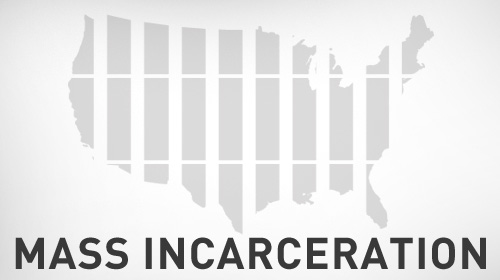
Senator Leahy closed this morning’s Senate Judiciary Committee hearing on by asking everyone in the room with a loved one serving a mandatory minimum to stand up. The whole audience stood.
This was a poignant display of just some of the people impacted by the proliferation of mandatory minimum sentences over the last thirty years – since the “tough on crime” heyday of the 1980s. With federal prisons crowded way beyond capacity, and too many people locked up for far too long, it’s high time we reevaluate the effectiveness of overly harsh, unnecessarily long, and expensive mandatory sentences.
Today's hearing was a great step forward. We heard from voices across the political spectrum, from prosecutors, lawmakers, and advocates, and the consensus for reform is clear. Here’s your guide to the most important arguments from today’s hearing.
Mandatory Minimums Feed Into Our Mass Incarceration Crisis
The federal government cannot maintain a federal prison system that since 1980 has grown at an astonishing rate of almost 800 percent. In 2010, it cost us $80 billion dollars to incarcerate 2.3 million people in this country. Federal courts are overwhelmed with staggering immigration and criminal caseloads. One of the few ways we can address this unsustainable growth? Rolling back the harsh mandatory minimums that keep people locked in the federal system for far too long.
Many Mandatory Minimums Are Part of the Failed War on Drugs
Mandatory minimums have been used as heavy artillery in the War on Drugs – for example, . Currently, over 219,000 people are in federal prison and almost half of them are serving time for drug-related crimes – and in a majority of cases they are non-violent. As Senator Rand Paul said in today’s hearing, no one should be arrested just for having marijuana and no one should be locked away for years because of an unnecessarily harsh and expensive mandatory minimum related to drugs.
Prosecutors Need to Stop Thinking of the Length of a Defendant's Sentence as a Measure of Success
Brett Tolman, former United States Attorney from Utah, made in today’s hearing. The problem with mandatory minimums is that they put all the discretion for who will face a mandatory minimum in the hands of prosecutors who have a professional interest in securing as many convictions as possible. Mandatory minimums ensure that public policy concerns about cost, racial disparities and whether a particular punishment results in public safety are not a priority. The decision regarding what level of incarceration will serve public safety is best left in the hands of judges, who have more of an incentive to balance public safety needs against the facts in an individual case.
Rolling Back Mandatory Minimums Has Support across the Political Spectrum
Recent surveys have found that a majority of adults favor elimination of mandatory sentencing laws and support allowing judges to choose the appropriate sentence. In a 2012 Pew national survey, 70 percent agreed that “there are more effective, less expensive alternatives to prison” for those convicted of non-violent offenses and “expanding those alternatives is the best way to reduce the crime rate.” And in addition to public opposition of mandatory penalties, many judges and conservative commentators have expressed opposition to mandatory minimums.
To hear just one of the many conservative voices calling for mandatory minimum reform, it’s worth checking out Senator Rand Paul’s testimony from this morning in full:
"The Pendulum Swung Too Far, and We Swept in Too Many Low-Level Non-Violent Offenders."
This quote was part of Mark Levin’s . He’s the Policy Director at the Right on Crime Initiative at the Texas Public Policy Foundation and he’s correct. Federal mandatory minimum laws and some state laws afford defendants relief from the mandatory minimum in exchange for information helpful to prosecutors. Low-level defendants charged under mandatory minimums – drug couriers, addicts or those on the periphery of the drug trade, like spouses – often have no information to give to prosecutors for a sentence reduction.
Congress Needs to Take the Next Step
While the attorney general has taken some preliminary steps to address the mass incarceration crisis in this country, and the states have been introducing smart reforms to slow prison growth for years, the ball is now in Congress’ court. This year, we call on Congress to pass the Smarter Sentencing Act of 2013, which is comprehensive legislation that would reduce the length of some drug mandatory minimum sentences, and the Justice Safety Valve Act of 2013, which would give federal judges more discretion to sentence below a mandatory minimum sentence when appropriate.
For more information about the Smarter Sentencing Act and the Justice Safety Valve Act, as well as for more information about the need for mandatory minimum reform, check out the łÔąĎÖ±˛Ąâ€™s written testimony from today’s hearing.
Learn more about mandatory minimum sentencing and other civil liberty issues: Sign up for breaking news alerts, , and .

